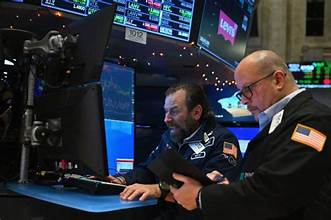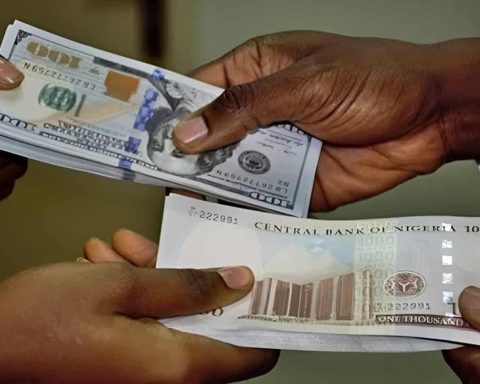Global Stock Markets React to US Federal Reserve’s Decision
Stock markets around the world have shown a positive response following the first benchmark rate cut in the United States since 2020. On September 18, the US Federal Reserve reduced its benchmark rate by 50 basis points, sparking optimism in global markets.
In the United Kingdom, the FTSE 100 Index posted a 1.02% gain, closing just 0.5% below its year-high. The FTSE All-Share Index also reflected this upward movement with a similar 1.02% increase. Meanwhile, in Asia, markets such as the Hang Seng Index (HSI) of Hong Kong closed with a 2% gain, while the Nikkei 225 from Japan recorded a 2.13% rise.
Join our WhatsApp ChannelThe US stock market joined the global rally, with major indices like the NASDAQ and S&P 500 gaining 2.3% and 1.57% respectively. “This rate cut was long overdue,” commented Sarah Jenkins, an equity analyst from New York. “It’s refreshing to see a global rally after months of uncertainty.”
Emerging Markets Join the Stock Market Rally
Emerging markets also experienced an upswing as a result of the Federal Reserve’s decision. The Johannesburg Stock Exchange (JSE) advanced by 1.68%, marking its best performance in September. However, not all markets share the same fortune. Kenya’s Nairobi Securities Exchange dropped by 0.17%, and Nigeria’s NGX All-Share Index recorded a 0.23% decline.
READ ALSO: Nigeria’s Stock Market Faces Continued Decline Amid Investor Caution
In Nigeria, stock performance took a different turn from the global trend, as the market backtracked on its previous bullish run. Despite this, global market trends remain largely positive. “We’re seeing mixed reactions in emerging markets, but overall, the mood is optimistic,” said Olumide Adebayo, a market analyst based in Lagos.
Why the Rate Cut Matters for the Stock Market
The US Federal Reserve’s decision has been anticipated for months. Since early 2024, analysts had been predicting a rate cut as inflation in the US rose from 3.09% in January to 3.48% by March. Many businesses and market experts argued that the high-interest rates were limiting growth, especially as the US job market weakened.
However, the Federal Reserve, led by Jamie Powell, maintained a hawkish stance for much of the year. The decision to hold rates in July caused panic across global stock markets, with fears of a potential recession looming. This led to one of the worst global stock market crashes in recent memory on August 5, particularly in Asia.
Finally, the decision to lower rates came as a relief to markets. According to John Davies, a financial advisor, “The rate cut is what the market needed to regain confidence. It’s no surprise that we’re seeing stock markets react so strongly.”
The Impact of the Rate Cut on Bonds
While the US Federal Reserve’s decision primarily impacted stock markets, it also had significant effects on bonds, especially in emerging markets. For instance, Nigeria’s Eurobonds experienced a decline in yield rates. The NOV 2025 Eurobond, which started the year with high yields, saw its rates fall to 7.137% as of September.
Nigeria also saw oversubscription in its first domestic dollar-denominated bond, which raised $900 million, despite having only sought $500 million. This bond’s 9.75% coupon rate has become a preferred investment option compared to the US 10-year treasury note, which offers yields between 4% and 4.2%.
“Investors are flocking to opportunities with higher returns, and Nigeria’s bond offerings fit that bill,” stated Adewale Kuti, a financial consultant based in Abuja. “The rate cut in the US has only enhanced these opportunities.”
Looking Ahead for the Global Stock Market
As the world watches, markets will continue to react to further moves from the US Federal Reserve. For now, optimism reigns, with markets in Asia, Europe, and the US largely benefiting from the rate cut.
Whether this growth will be sustained depends on further economic indicators, particularly in the US. Many analysts expect a period of volatility as the global economy adjusts to this new monetary environment.
Still, for now, the global stock market rally offers hope to investors after months of uncertainty. In the words of analyst Sarah Jenkins, “This is the bounce we’ve been waiting for.”
Emmanuel Ochayi is a journalist. He is a graduate of the University of Lagos, School of first choice and the nations pride. Emmanuel is keen on exploring writing angles in different areas, including Business, climate change, politics, Education, and others.















